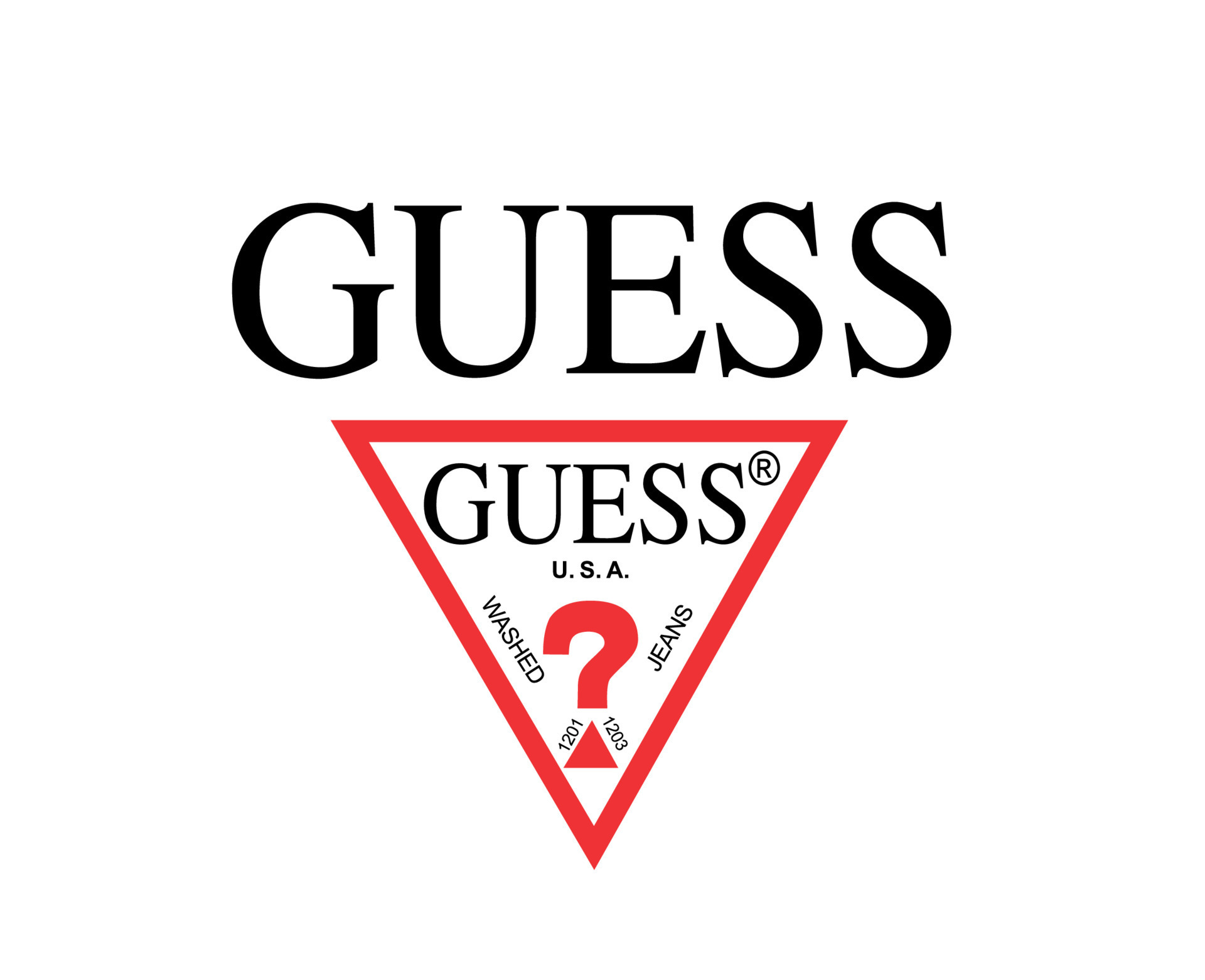There are moments in life, aren't there, when a question hangs in the air, just out of reach? That feeling, that little bit of wonder mixed with a touch of resignation, often gets summed up perfectly with a phrase we all know: "I guess we'll never know." It's a sentiment that pops up in conversations about everything from what happened in a favorite TV show to bigger, more serious world events. This phrase, you see, captures a very human response to things that stay a mystery. It speaks to our deep wish for answers, yet also our quiet acceptance when those answers simply aren't there.
Think about it, that phrase, "I guess we'll never know," it truly comes up in so many different ways. It might be about a small, personal puzzle, like why someone acted a certain way, or it could be about something much larger, like the true motivations behind big decisions made by powerful people. It’s a phrase that lets us acknowledge the unknown without getting too worried about it, which is rather a helpful thing to be able to do sometimes. We want to figure things out, but sometimes, you just can't, can you?
This feeling of not knowing, it’s a big part of being human. We live in a world that, in some respects, gives us so much information, yet still, there are vast areas where things remain unclear. This article will look at why "I guess we'll never know" is such a common idea, how it shows up in our daily lives, and what it means to live with those unanswered questions. We will, in a way, try to get a bit more comfortable with the uncomfortable truth of not having all the answers.
Table of Contents
- The Meaning Behind the Words
- When We Say It: In Everyday Life
- Big Questions and the Unknown
- Dealing with Uncertainty
- The Power of Acceptance
- Frequently Asked Questions
The Meaning Behind the Words
The phrase "I guess we'll never know" holds a lot of feeling. It is, quite simply, an expression of surrender to the unknown. We use it when we have explored all the paths, asked all the questions we can think of, and still, the answer remains hidden. It is a very human way of saying, "I tried, but it's just not going to happen." This phrase, in some respects, is a quiet admission that some things are just beyond our current reach, or maybe even beyond anyone's reach, and that's okay, or at least it has to be.
Think about the times you have heard it. Maybe someone is talking about a strange event, or a historical puzzle, and after much discussion, they shrug and say it. It’s not about giving up, really, but more about accepting a limit. It is about recognizing that not every question has a clear, neat answer, and sometimes, the mystery itself is part of the story. This idea, you know, is quite a powerful one, as it lets us move past the need for a solution and just live with the question.
The phrase also carries a bit of shared experience. When one person says "I guess we'll never know," it often means that others in the conversation feel the same way. It builds a kind of connection, a shared understanding of a puzzle that no one can solve. This shared feeling, you see, can be quite comforting, knowing you are not alone in facing something unclear. It is, more or less, a collective sigh about the things we simply cannot figure out, and that's just how it is.
When We Say It: In Everyday Life
This simple phrase pops up in so many ordinary moments. You might be chatting with friends about why a certain sports team made a strange play, and someone says, "I guess we'll never know." Or perhaps you are talking about a celebrity's unexpected comment, and that familiar phrase comes out. It is, typically, a way to close a discussion when there is no more information to be had, allowing everyone to move on without feeling like they missed something important, or at least something they could have known.
Consider the example from "My text" about Kanye West. It says, "Everybody wants to know what i would do if i didn't win, I guess we'll never know." This is a perfect instance of the phrase being used in a very public, rather personal context. He is talking about a hypothetical situation, something that did not happen, so the answer to that question will, quite literally, never be known. It is a way of acknowledging the curiosity, but also putting a firm stop to the speculation, which is a bit clever, isn't it?
The phrase also appears in lighter moments, like when we talk about online communities. "29m subscribers in the memes community" or "832k subscribers in the kanye community" show how many people gather around shared interests, often discussing things where answers might be elusive. Someone might ask, "I don’t know who’s on third base, could you tell me?" and the response could very well be a version of "I guess we'll never know" if the information isn't readily available. It is, in a way, a part of the everyday banter, a quick way to admit a lack of information.
Big Questions and the Unknown
Beyond the daily chatter, "I guess we'll never know" also applies to much bigger, more serious matters. When we think about major world events, or decisions made by powerful people, often the full truth remains hidden. The provided text mentions, "The release of öztürk and mahdawi is a critical win against the trump administration’s authoritarian efforts to silence free speech, though it hardly marks the end of." While this is a win, it suggests a bigger, ongoing struggle, where the full story, or what happens next, is not completely clear. We might never truly know all the ins and outs of such complex situations, which is a bit unsettling, really.
Consider the idea of global leaders, like "President xi of china, the leaders of iran, the russians, they think they know the art of intimidation." The text implies a sense of hidden motives or strategies. We, the public, might see the actions, but the deeper reasons, the true intentions, often remain opaque. For these sorts of things, people often say, "I guess we'll never know" about the real power plays or the complete truth behind international relations. It is, you know, a common feeling when dealing with things on such a grand scale.
Even in areas like science or history, there are questions that remain unanswered. The text mentions theories about the "indian guy" who "does not know" certain things, with "many theories... but none of them have enough proof." This is a classic example of a situation where, despite much thought and effort, the definitive answer is simply not there. We can speculate, we can theorize, but without solid proof, we are left with that familiar feeling: "I guess we'll never know." This is, in some respects, a core part of how we learn and how we face the limits of what we can discover.
Dealing with Uncertainty
Living with unanswered questions can be a bit hard for some people. We are, typically, wired to seek answers, to make sense of the world around us. When we cannot find those answers, it can feel frustrating, or even a little bit scary. The phrase "I guess we'll never know" can, in a way, be a tool for managing that discomfort. It allows us to acknowledge the lack of a clear answer and then, perhaps, to let go of the need to find one, which is rather a good skill to have.
Sometimes, the unknown is about things we just don't understand, like "I don't need you to understand." This line from the text suggests a situation where one person has a perspective or knowledge that others might not share, and there is no expectation for them to grasp it. In such cases, the "I guess we'll never know" feeling might come from the other side, the ones who are not meant to understand. It is, you know, a way of accepting that some things are just not for us to fully grasp, and that is okay.
We see uncertainty in many parts of life. Even in sports, like with the "95k subscribers in the astros community" celebrating their wins, there are always questions about how teams perform, or what strategies truly led to success. While fans might have strong opinions, the full truth of every decision, every moment, might never be completely known. It is, in a way, part of the fun of following something like sports, where not everything is perfectly clear, and the discussions about "what if" never truly end.
The Power of Acceptance
There is a quiet strength in saying "I guess we'll never know" and truly meaning it. It shows a kind of acceptance, a willingness to live with ambiguity. In a world that often demands clear, definite answers, being able to embrace the unknown is a very valuable trait. It means you are not constantly chasing something that might not be there, freeing up your energy for things you can actually influence or understand. This is, actually, a good step for anyone.
Think about the emotional weight of certain situations. The text mentions, "I can't shake how human this whole speech is, He looks like he really can't believe he won a grammy, He's trembling, sweating, and you can tell he's holding back the." In such a raw, personal moment, there might be so many unspoken feelings or thoughts. We, as observers, might never truly know the full depth of what that person was experiencing, or the exact thoughts going through their head. And, in a way, that is perfectly fine. The beauty is in the human moment itself, not necessarily in knowing every single detail, you know?
Accepting that some things will remain a mystery can bring a kind of peace. It stops the endless speculation and the frustration of not having all the pieces of a puzzle. It allows us to appreciate the present moment and the information we do have, rather than constantly striving for what is just out of reach. This approach, you see, can make life a bit simpler, a little less stressful, and it is something that, perhaps, we all could use more of in our daily lives, especially today, on this day, .
Consider how much news we get, how much information flies around. "You really need to watch this videao if you care about what's going on today,I could tell you what's in it but then you wouldn't watch it, would you." This line, from "My text," hints at information being held back, or the idea that revealing everything upfront might lessen the impact. In such cases, the full picture might only become clear over time, or perhaps never completely. We are left to wonder, and sometimes, that wondering is part of the point, isn't it?
The sentiment of "I guess we'll never know" also applies to things that are just too big for one person to grasp fully. The text mentions, "They were protesting something much bigger than that." When protests happen, the immediate reasons are often clear, but the deeper, more complex forces at play, the full history and future implications, can be vast. We might never truly know every single thread that led to such a big event, or how it will truly change things in the long run. It is, you know, a very common feeling when we look at large social movements or historical shifts.
Even when we feel like we are "waaayyy behind on political news though," as the text says, there is a sense that the political landscape is always moving, always changing. Trying to keep up with every single development, every secret deal, every hidden motive, is nearly impossible. So, for many aspects of politics, especially the parts that happen behind closed doors, we often end up saying, "I guess we'll never know" about the true story. This is, in a way, just how the world works sometimes, with bits of information always staying out of sight.
The phrase also touches on the idea of cultural information being shared. "A way of describing cultural information being shared" implies a flow of ideas and stories. But even with all this sharing, some parts of culture, some origins of traditions, or the true impact of certain trends, might remain mysterious. We might see the outcome, the shared memes, the community discussions, but the full story of how it all came to be, or where it will go, is often not fully known. It is, in some respects, a beautiful part of culture itself, that it holds its own secrets, more or less.
Think about the simple yet complex nature of a game or a story. The text mentions "john gutter is the first level of pizza tower, and is the first level of the tower lobby, This level takes place at the entrance of the tower, featuring a jungle and a." Even in a fictional world, there can be elements that are left to the imagination, or details that the creators never fully explain. Players or fans might create their own theories, but the definitive answer from the source might never come. This is, you know, a very common thing in creative works, where some things are just left open, and we just have to be okay with that.
So, the next time you find yourself saying "I guess we'll never know," take a moment. Recognize that feeling. It is a shared human experience, a quiet nod to the limits of our knowledge, and a gentle invitation to find peace in the unanswered. It is, actually, a sign of wisdom, a way to be okay with the world as it is, with all its questions and all its mysteries. Learn more about unanswered questions on our site, and link to this page understanding uncertainty.
Frequently Asked Questions
Here are some common questions people often ask about this topic:
What does "I guess we'll never know" really mean?
It means that a question has no clear answer, or that the information needed to solve a mystery is simply not available. It is, basically, an admission that something is beyond our current ability to figure out, and that we have to accept that fact. It is a way of letting go of the need for a solution, which is quite a powerful thing to do.
Is it okay to not have all the answers?
Yes, it is perfectly okay, actually. In fact, it is a very normal part of life. Not everything has a neat explanation, and sometimes, the beauty or the lesson is in the question itself, not in a definite answer. It is, you know, a sign of maturity to be comfortable with not knowing everything, and it can bring a bit of peace.
How can I be more comfortable with uncertainty?
You can try to focus on what you *do* know and what you *can* control. Practice letting go of the need for perfection or complete understanding in every situation. Sometimes, just acknowledging the unknown with a phrase like "I guess we'll never know" can help you move past it. It is, more or less, about changing your outlook a little bit, which can make a big difference.



Detail Author:
- Name : Aurelio Barton
- Username : witting.larissa
- Email : zoey12@gmail.com
- Birthdate : 2003-01-01
- Address : 8633 Mina Ridges Suite 723 Rathland, SC 25216
- Phone : 531.565.1329
- Company : Spinka LLC
- Job : Extraction Worker
- Bio : Totam fuga nisi accusamus quisquam. Praesentium quia earum earum veritatis. Dolorum qui aut ut totam.
Socials
facebook:
- url : https://facebook.com/carmine_emmerich
- username : carmine_emmerich
- bio : Praesentium ipsam voluptatem eaque impedit repellat voluptatem veniam.
- followers : 3059
- following : 235
linkedin:
- url : https://linkedin.com/in/carmineemmerich
- username : carmineemmerich
- bio : Ipsa rerum voluptatum voluptas ad.
- followers : 4901
- following : 505
tiktok:
- url : https://tiktok.com/@emmerich2012
- username : emmerich2012
- bio : Quam quis ut consequuntur culpa temporibus.
- followers : 6779
- following : 2815
instagram:
- url : https://instagram.com/carmineemmerich
- username : carmineemmerich
- bio : Et et quod magnam facere distinctio quia id. Eum non dolores voluptates.
- followers : 1672
- following : 2921

